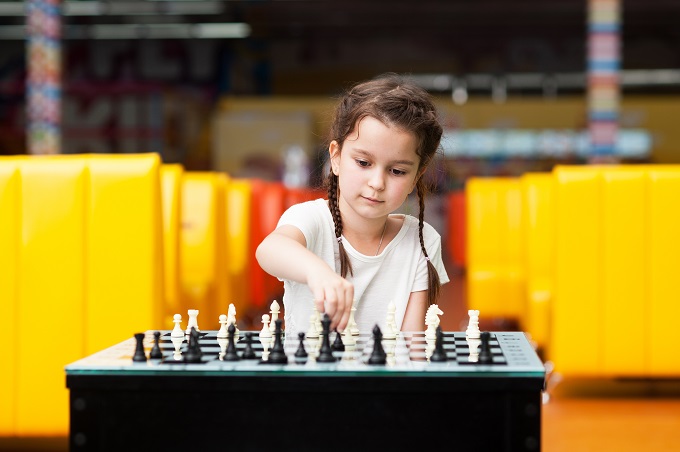
© Rakursstudio - stock.adobe.com
Evidently it’s working well for students, with online teaching sessions on the Programme attracting around 90% attendance. “Lectures on campus don’t typically get anywhere near that level of attendance,” says Design Programme head, Associate Professor Deb Polson.
Dr Prof Polson had extensive experience in gamification at both an academic and professional level before she took up her new role at the University in 2019. “But we’re not teaching gaming. We’re using the mechanics and principles of successful game design, to teach and motivate students.”
Games take many forms, from online multiplayer to single player mobile games, each designed for different player styles and interests, says Dr Polson.
“All of them present new rules to learn and activities to master, with a precise balance of difficulty and fun to keep it challenging and motivating. They encourage social interaction, a bit of competition as well as collaboration among students.”
A well-designed game is a great motivational tool, and offers insights and ideas on how to motivate students engaged in online learning.
Dr Zachary Fitz-Waller who also lectures at the school would agree. He should know; he is the author of An Introduction to Gamification, and one of the first people in the world to complete a PhD in gamification design.
He completed his PhD the Queensland University of Technology (QUT) in which he looked at why games are so motivating, how a well-designed game can be used to motivate us to do the things we should but don’t always do “such as eating well, learning another language, or getting enough exercise,” he says.
He cites ‘Zombies, Run’ as an example of a game that has been particularly effective at motivating people to go for a run, including him. “It has a narrative written by novelist Naomi Alderman, so you put it on and listen to the narrative, but you can also turn ‘zombie chases’ on where at times during your run you’ll hear zombies breathing down your neck and if you don’t run fast enough, they’ll get you. It’s so much fun.”
Dr Fitz-Walter leads DESIGN 100 a studio-based introduction to design methods and processes, which is about the how-to of design, “how to identify a problem, how to design and prototype a solution”.
Before the lockdown, much of the coursework was studio based, in a newly designed space for the Programme, fitted out with a number of fabrication technologies, such as laser-cutters, 3D printers et al.
While he and colleagues have had to adjust the Programme with the lockdown, in many ways the staff were well-prepared. “Much of our teaching and learning is was what is called ‘flipped classroom’ or ‘blended learning’, which combined pre-recorded and online lectures, which were then put into practice, in three hour fabrication workshops,” says Dr Fitz-Walter.
“So we were already trialling different ways of teaching, which meant we had a lot of useful teaching methods ready when we transitioned to Alert Level 4.”
The different technological platforms being used for their online teaching programme were scrutinised and tested, not only as whether they were effective platforms on which to teach, but which, importantly, allowed for and encouraged the social aspects of the university life.
They are, for instance, using an online community tool, called Discord. “It’s mostly used by video gamers who might create a server around a particular game, so gamers can chat and connect with each other while playing games.
“But I’ve used it to create an interactive space, to create chat channels between students. We’re also using it for ‘Virtual office hours’ when a group of students can get together with teachers, and have an open discussion about a topic the students raise as important to them at the time.”
The students don’t currently have access to “the amazing digital and physical fabrication labs” he agrees, but they are receiving online training for a number of technologies, so that they will have well-prepared designs to complete their projects when they do have access to the workshop.
Assoc Prof Polson reiterates; one of the best (and often under-appreciated) aspects of gaming, it that it fosters friendships.
“One of the great things about a university is that it’s a place for creatives to work together, with professionals, and to learn from each other,” she says.
“That’s how friendships are formed, which are crucial for people working in the creative area. So in a number of ways, we’re making sure that the technologies we are using for online teaching also allows for and encourages that.”
A new report from the University of Auckland’s Our Voices Project asks young people what…
The government has opened a tender for new standardised assessment tests, leaving educators shocked and…
Early in her career, Kiri Turketo found inspiration in an unlikely source. In this Principal…
Real stories of dedication, challenges, and triumphs from educators in NZ. Part six comes from…
Is fast furniture impacting your school's environmental footprint? We explore eco-friendly solutions to reduce furniture…
A new report from the New Zealand Initiative argues we need a stronger and clearer…
This website uses cookies.